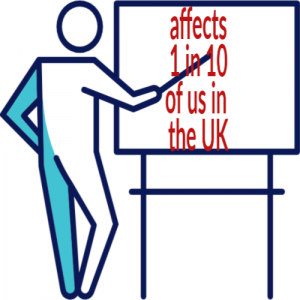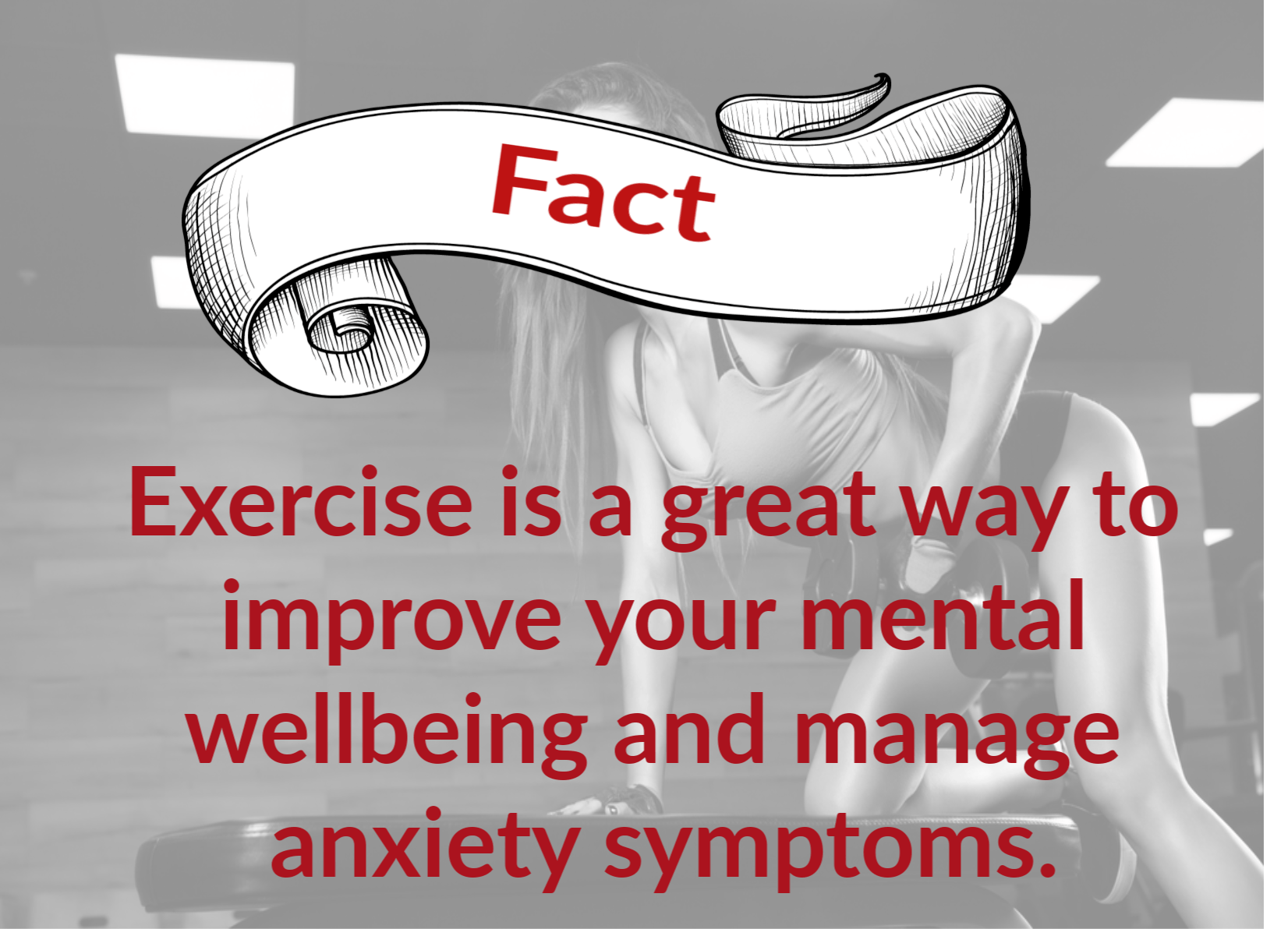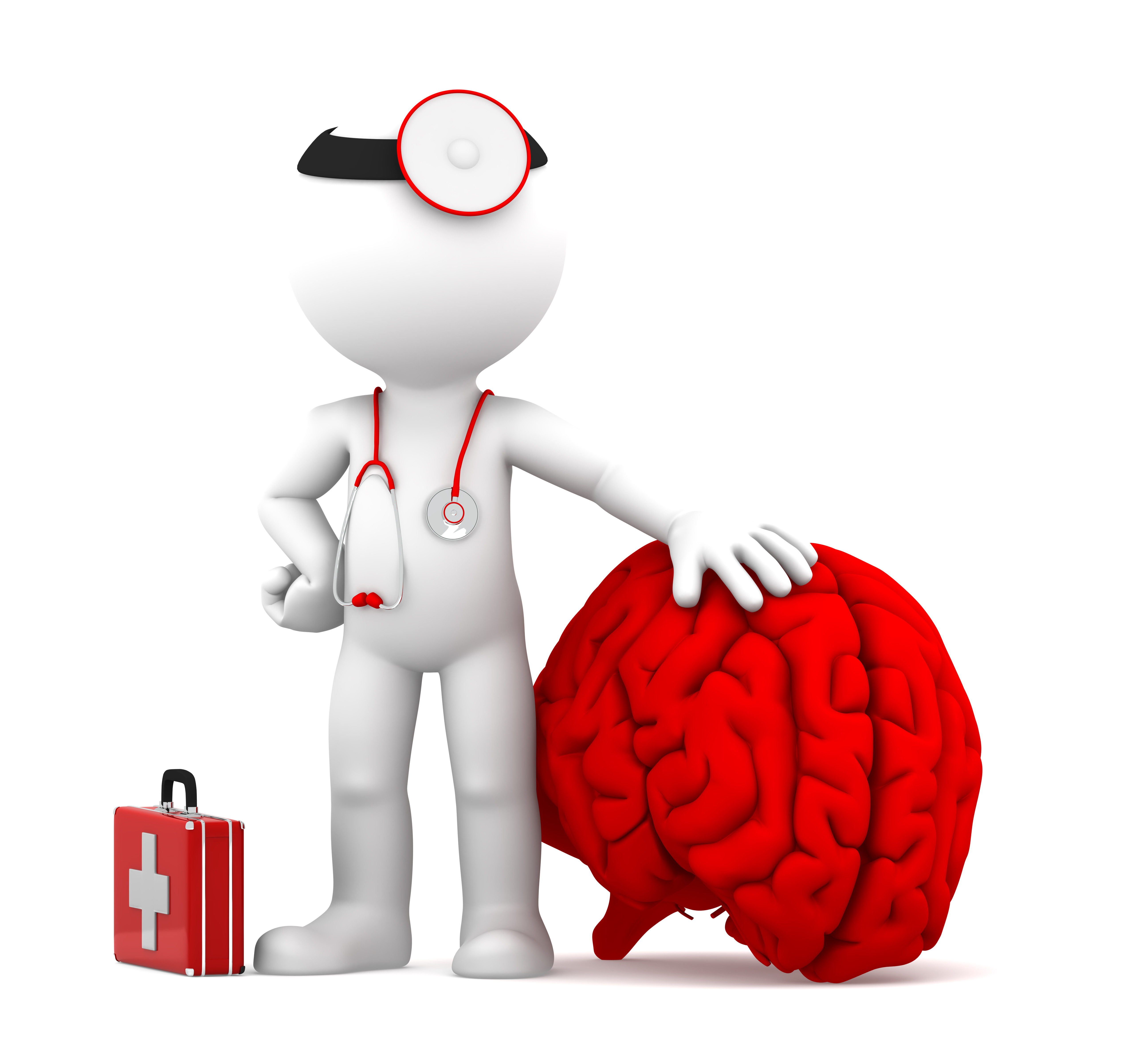Anxiety Disorders
Lesson 4
SEE THE SIGNS
There are different types of anxiety - including panic attacks, social anxiety, post-traumatic stress disorder and obsessive-compulsive disorder.
Anxiety means feeling worried, fearful or nervous. It's natural to be anxious - but if the feelings don't go away, get worse or have no cause, they can become a problem.
But here are some common symptoms for them all:
- Racing thoughts
- Difficulty concentrating
- Feelings of dread
- Irritability
- Sleep and appetite problems
- Fast breathing and heartbeat
- Hot flushes or blushing
- Dry mouth
- Shaking
- Extreme tiredness or lack of energy
- Dizziness and fainting
- Stomach aches and sickness
TREATMENT
Many people use self-help methods, which you can find out more about by following the link.
Talking therapy can really help too, either one-to-one or in a group.
You can also tackle anxiety with medication, and both of these options are available on the NHS.
If you have any symptoms described above, it's a good idea to talk to your GP.


